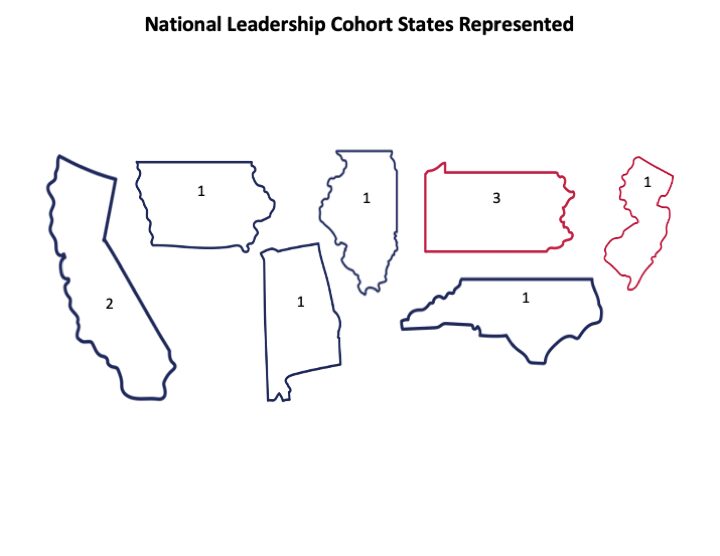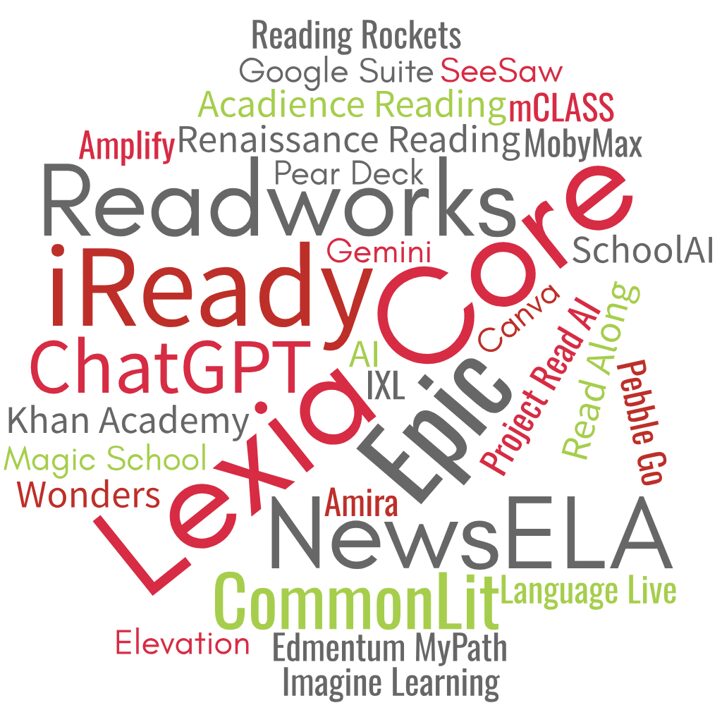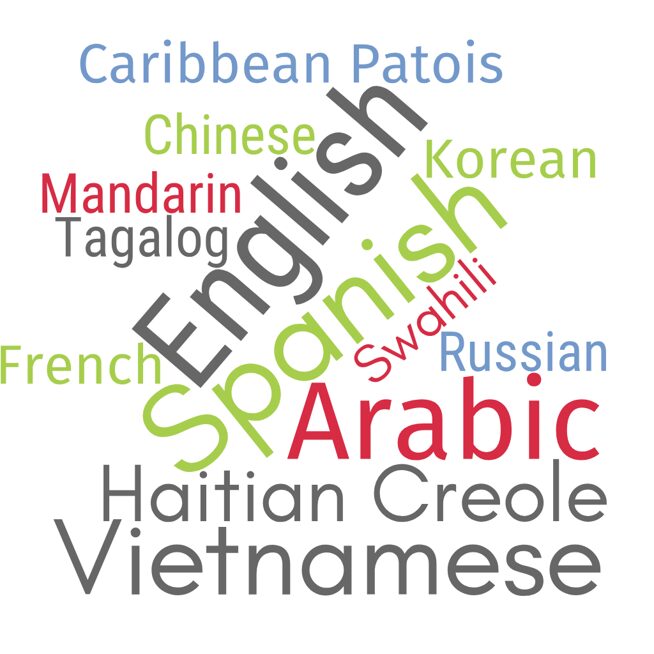
During Year 1, the U-GAIN Reading National Leadership Cohort will explore how districts and schools can effectively use generative artificial intelligence (GenAI) to enhance elementary reading instruction.
The cohort has expressed a strong interest in:
Teachers from across seven states make up U-GAIN Reading’s National Leadership Cohort. U-GAIN Reading’s National Leadership cohort includes 11 educators from 10 school districts across seven states specializing in reading intervention, English language development, and learning technology adoption. National Leadership Cohort members have a deep interest in the application of AI and a commitment to improving reading for all learners.
Here’s a look at the National Leadership Cohort by the numbers:

Teachers from across seven states make up U-GAIN Reading’s National Leadership Cohort.
The National Leadership Cohort already uses numerous AI technologies to support their work, including Lexia, Core, iReady, Epic, NewsELA, ReadWorks, CommonLit, and ChatGPT.
National Leadership Cohort Technologies Used

The National Leadership Cohort leverages existing technologies in their classroom. / Wordclouds generated by https://www.wordclouds.com/
The cohort supports a diversity of learners who speak a variety of languages, including: English, Spanish, Arabic, Haitian Creole, Vietnamese, Caribbean Patois, Chinese, French, Korean, Swahili, Tagalog, Russian, and Mandarin.
National Leadership Cohort Student Languages Represented

The National Leadership Cohort leverages existing technologies in their classroom. / Wordclouds generated by https://www.wordclouds.com/
Nine of our 11 educators hail from the League of Innovative Schools, a national network that connects and supports the most forward-thinking leaders in education. League members represent more than 150 districts in 34 states, with diverse experiences that reflect the advancements, challenges, and vital work of public education in the United States.
Through their leadership in U-GAIN Reading’s National Leadership initiative, cohort members support their districts’ commitment to collaborating, innovating, co-designing and piloting solutions, and sharing their experiences with other districts.
Below, we asked six of the leaders to share their thoughts and perspectives about participating in the cohort, successes and challenges with using digital platforms, and more.
“My personal experience as a struggling reader and writer has fueled my dedication to ensuring that students feel a strong sense of belonging. I want to help create an environment where every student feels seen and supported.”
— Katherine Adler, a teacher on special assignment at Patterson Road Elementary in Orcutt Union School District (Santa Maria, California)
“With artificial intelligence as a district priority, understanding how AI can support young readers would be highly beneficial. I anticipate this cohort having a meaningful impact on all elementary schools.”
— Melissa “Missy” Smith, executive director of learning and teaching for Allentown City School District (Allentown, Pennsylvania)
“I would love to learn more strategies to help struggling readers, especially English learner (EL) students. I’m always looking for effective, research-based practices that I can bring back to support both students and teachers. Participating in this cohort would give me the opportunity to collaborate with other educators, share ideas, and learn new ways to address the diverse literacy needs in our classrooms.”
— Morgan Herman, technology coach at B.B. Comer Elementary in Talladega County School District (Sylacauga, Alabama)
“As a reading specialist, I only have so much time to assess and interact directly with each learner to focus on their exact individual needs. I have yet to find a program that uses AI to do this. I would love to explore interactive AI programs that can act as tutors for kids in order to provide them one-on-one feedback regularly.”
— Kristen Flores, primary support teacher at Sequoia Academy in Westminster School District (Westminster, California)
“Successes include digital learning platforms that enable equitable learning experiences, personalized learning, increased student engagement, and an opportunity for skill reinforcement. Challenges include building educators’ capacity with an already overloaded workload, unpredictable tech issues with platforms, and monitoring student behavior.”
— Brooke Falck, instructional specialist for equity and innovation for Indian Prairie School District (Aurora, Illinois)
“When developing AI learning tools, it is essential to prioritize accessibility, cultural and linguistic responsiveness, and differentiated language support. It is also critical to integrate scaffolded language development features that adapt to a student’s proficiency level and promote gradual, supported growth rather than relying on translation alone.”
— Orchid Rocha, Spanish dual support teacher at Willmore Language Academy in Westminster School District (Westminster, California)
The National Leadership Cohort, in collaboration with Digital Promise, will support plans to develop a national listening session and a resource toolkit to explore ethical considerations of AI use for young readers, examining and highlighting key research in the science of reading, and fostering national leadership through engagement opportunities.
In this capacity, the National Leadership cohort will create new learning opportunities for practitioners and experts and develop and disseminate practitioner-facing resources and recommendations for the adoption of AI-enabled digital reading interventions in schools.
To learn more about U-GAIN Reading’s national efforts to improve literacy outcomes and shape the future of AI-enabled learning, please contact U-GAIN Reading.